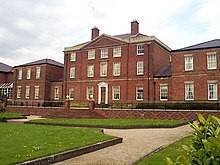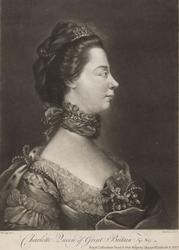Wedgwood
Wedgwood pottery is a type of fine ceramics that was founded by Josiah Wedgwood in the mid-18th century. Wedgwood is known for its high-quality earthenware and porcelain that features intricate designs, exquisite craftsmanship and vivid colours.
Josiah Wedgwood was born on the 12th July 1730 in Staffordshire, England, the youngest of 12 children of the potter Thomas Wedgwood. Josiah came from a family of potters whose members had been potters since the 17th century. He learned the craft from his father and worked in the family business at the Churchyard Works, Burslem, becoming exceptionally skilful at the potter’s wheel.

An attack of smallpox seriously curtailed Josiah’s work, however this enabled him to read, research and experiment in his craft. In 1754 Josiah joined Thomas Whieldon of Fenton Low, Staffordshire, who was the leading potter of his day. This proved to be a fruitful partnership, enabling Josiah to become a master of the various pottery techniques.
After inventing the improved green glaze which is still popular today, Josiah Wedgwood terminated his partnership with Whieldon in 1759 and went into business for himself at the Ivy House Works in Burslem.
In January 1764 Josiah Wedgwood married Sarah Wedgwood (1734–1815), his third cousin. They had eight children.
In 1765, Wedgwood created a new form of cream-coloured earthenware. The invention of creamware was the result of experimentation in order to find a British substitute for imported Chinese porcelain, and the cream colour was considered a fault at the time. However, the cream-coloured earthenware impressed the then British Queen consort Charlotte of Mecklenburg-Strelitz, wife of King George III, who gave official permission to call it "Queen's Ware."
Queen’s ware is well finished and clean in appearance with simple decoration, Queen’s ware became, by virtue of its durable material and serviceable forms, the standard domestic pottery and enjoyed a worldwide market.

Josiah Wedgwood purchased Etruria, a large Staffordshire estate, as both a home and factory site in 1766. Wedgwood developed a number of further industrial innovations for his company, notably a way of measuring kiln temperatures accurately.

Etruria Hall
A steam engine was installed at Etruria in 1772, as well as an engine-turned-lathe, as Wedgwood embraced the latest technology of the Industrial Revolution. Continuing to innovate as an employer, too, Wedgwood created a village for his workers and their families. The housing was convenient for everyone, but, since Wedgwood retained ownership of the properties, it did also give the employer a level of control over his employees not seen before in industry. On the other hand, Wedgwood did pay his workers well.
During the late Georgian period, the fame of the factory grew. Wedgwood was quick to respond to the latest fashions. Patterns harmonized with the elegant interior decoration of the time, and figures and vases were made in Jasper and Basalt.
Wedgwood always took new shapes home for his wife, Sarah to try out, before large-scale production began. In the early 19th century, bone china was made in limited quantities, but in the last 100 years it has been of growing importance in the factory production.
Wedgwood's best-known product is jasperware created to look like ancient cameo glass. Jasperware was inspired by the Portland Vase, a Roman vessel which is now a museum piece.
A first edition copy of the Portland Vase made in the late eighteenth century realised £20,000.00 at Sotheby’s on 30th November 1971 – a world record auction price for an English ceramic.
Josiah Wedgwood paid the third Duke of Portland £100, a handsome hiring fee in those days, for the loan of the Barberini (or Portland) vase in order to model his famous Jasper reproductions.
Josiah Wedgwood was an enthusiastic supporter of the American War of Independence, and worked against the slave trade. As a businessman he realised that items could be made to commemorate particular events. Jasperware proved very useful for this and Wedgwood continue to make event pieces, the latest being a mug to commemorate the Coronation of King Charles III.
The abolition of slavery was another cause which received the active support of Josiah Wedgwood. In 1787 he produced a cameo depicting a slave kneeling in chains with the inscription ‘Am I not a man and a brother?’ Thousands of these were freely distributed.

During the early years, Wedgwood engaged famous artists of the day such as John Flaxman and George Stubbs. John Flaxman was 19 years old when he was employed in 1774 as an artist, and he continued to work for Wedgwood for 12 years. “The Dancing Hours" may be his most well-known design.
Josiah Wedgwood’s eldest daughter, Susannah, was the mother of Charles Darwin, the biologist and author of ‘The Origin of Species’.
Josiah’s eldest son John was a founder of the Royal Horticultural Society. His youngest son Thomas became famous as one of the pioneers of photography.
With booming sales all over the world, the future of the Wedgwood name was assured. Josiah Wedgwood died in January 1795 and is remembered as the "Father of English Potters". His pioneering spirit, vigorous design policy and his commitment to exacting standards of quality are values that remain at the heart of the brand today.
Josiah Wedgwood’s son and nephew continued his legacy after his death.
As well as being a pioneer in the world of pottery, Josiah Wedgwood also held very strong beliefs and was an astute businessman. Josiah Wedgwood is considered to be one of the wealthiest entrepreneurs of the 18th century. He created goods to meet the demands of the consumer, he is credited as a pioneer of modern marketing, specifically direct mail, money back guarantees, travelling salesmen, self-service, free delivery, buy one get one free and illustrated catalogues. Historian Tristam Hunt called Josiah Wedgwood a “difficult, brilliant, creative entrepreneur whose personal drive and extraordinary gifts changed the way we work and live”.
The present Wedgwood factory was built from 1938 to 1940 on the Barlaston estate, which was purchased from the Broughton-Adderley family in 1936. However, the move from Etruria only took place in 1950, due to the intervention of the Second World War.
Wedgwood (as part of the Fiskars group) is still producing high-quality ceramics, including jasperware and bone china and is considered one of the most prestigious pottery brands in the world. Josiah Wedgwood’s designs continue to be highly sought after by collectors and enthusiasts, and the company’s legacy as a pioneer of English pottery continues to inspire and influence the craft to this day.








